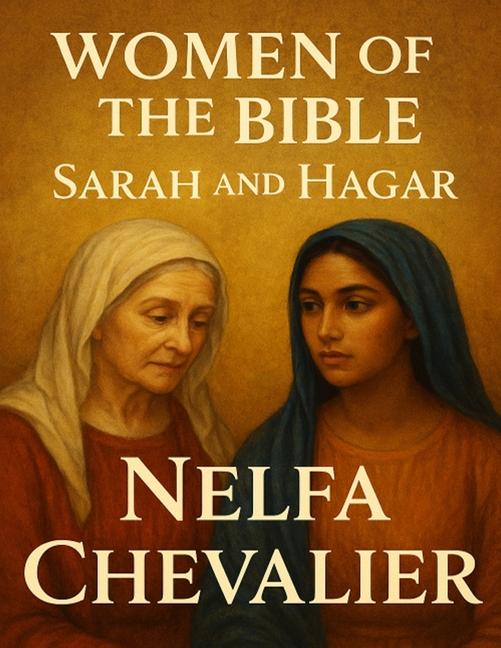Description
At the heart of Genesis, where humanity's origins are interwoven with God's eternal promises, two women stand as symbol and prophecy: Sarah, the barren wife who believed in the divine promise, and Hagar, the Egyptian slave girl who was looked upon by the living God.
Some stories are more than narrations o descriptions, they are mirrors of the soul, echoes of humanity, and seeds of divine revelation. Among them, the intertwined lives of Sara and Hagar stand as one of the most intense and meaningful narratives in the biblical tradition.
This is not a simple story. It is not just a tale of domestic tensions or power conflicts. It is a profoundly theological narrative, a luminous scene in the drama of salvation that runs through biblical history. In Sarah the gratuitousness of divine choice is manifested: God acts where there is no human possibility.
In Hagar, the Most High's compassion for the marginalized is revealed: even in exclusion, God sees, hears, and responds. Sarah and Hagar shared the same physical space, but their fates seemed to contradict each other. One free, the other slave. One wife, the other concubine.
Some stories are more than narrations o descriptions, they are mirrors of the soul, echoes of humanity, and seeds of divine revelation. Among them, the intertwined lives of Sara and Hagar stand as one of the most intense and meaningful narratives in the biblical tradition.
This is not a simple story. It is not just a tale of domestic tensions or power conflicts. It is a profoundly theological narrative, a luminous scene in the drama of salvation that runs through biblical history. In Sarah the gratuitousness of divine choice is manifested: God acts where there is no human possibility.
In Hagar, the Most High's compassion for the marginalized is revealed: even in exclusion, God sees, hears, and responds. Sarah and Hagar shared the same physical space, but their fates seemed to contradict each other. One free, the other slave. One wife, the other concubine.
Last updated on
Product Details
- Jun 23, 2025 Pub Date:
- 9798289375810 ISBN-10:
- 9798289375810 ISBN-13:
- English Language




